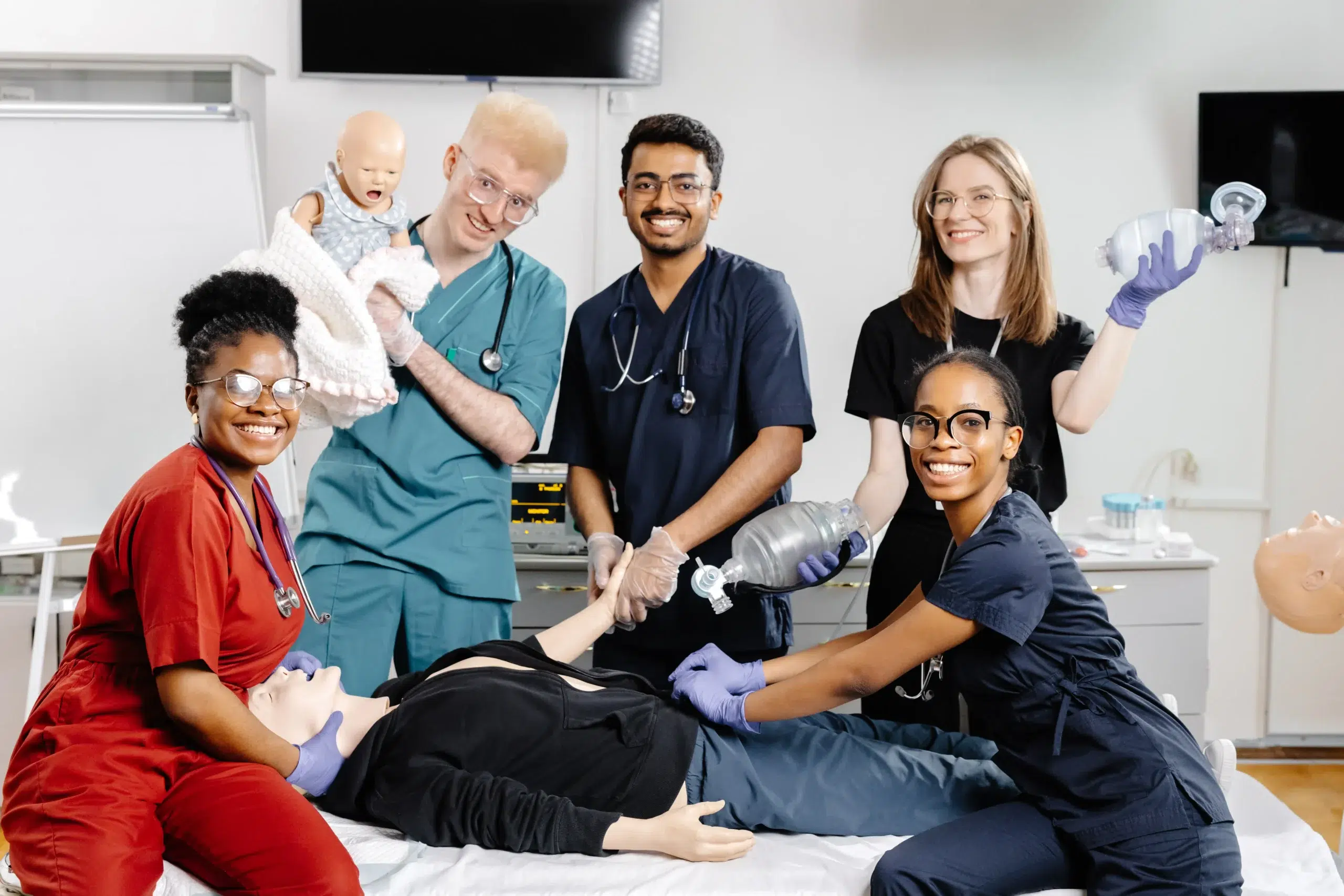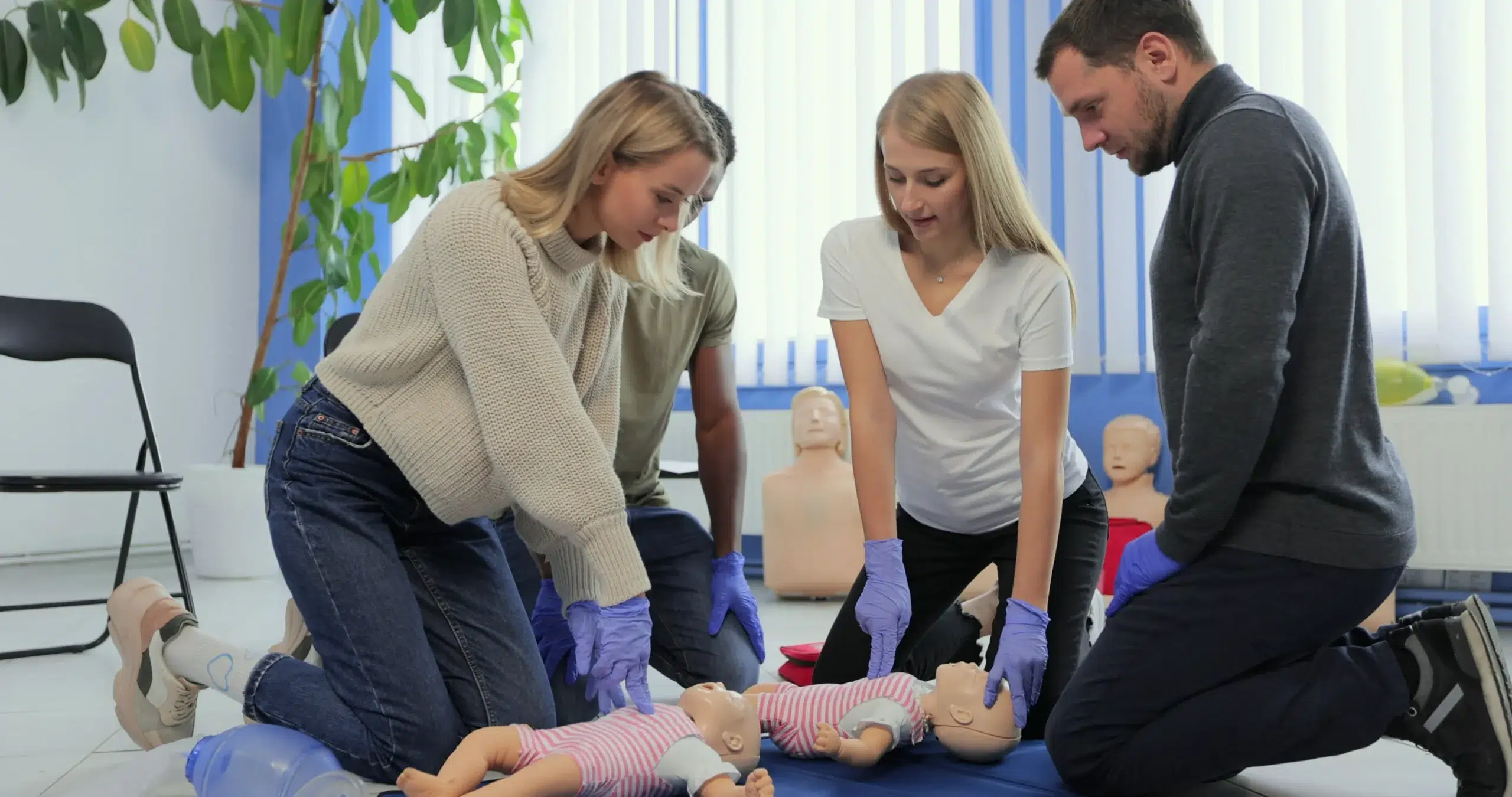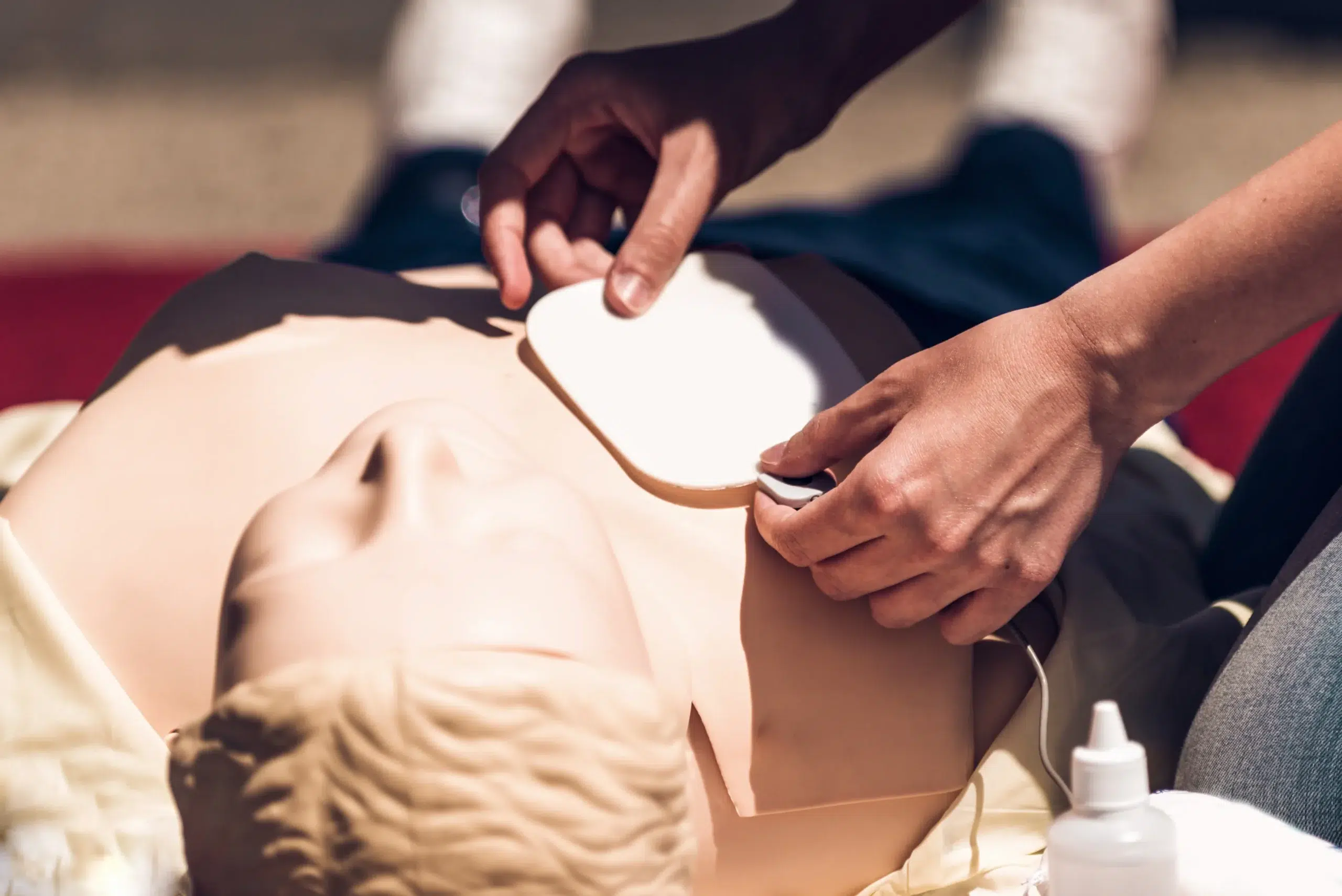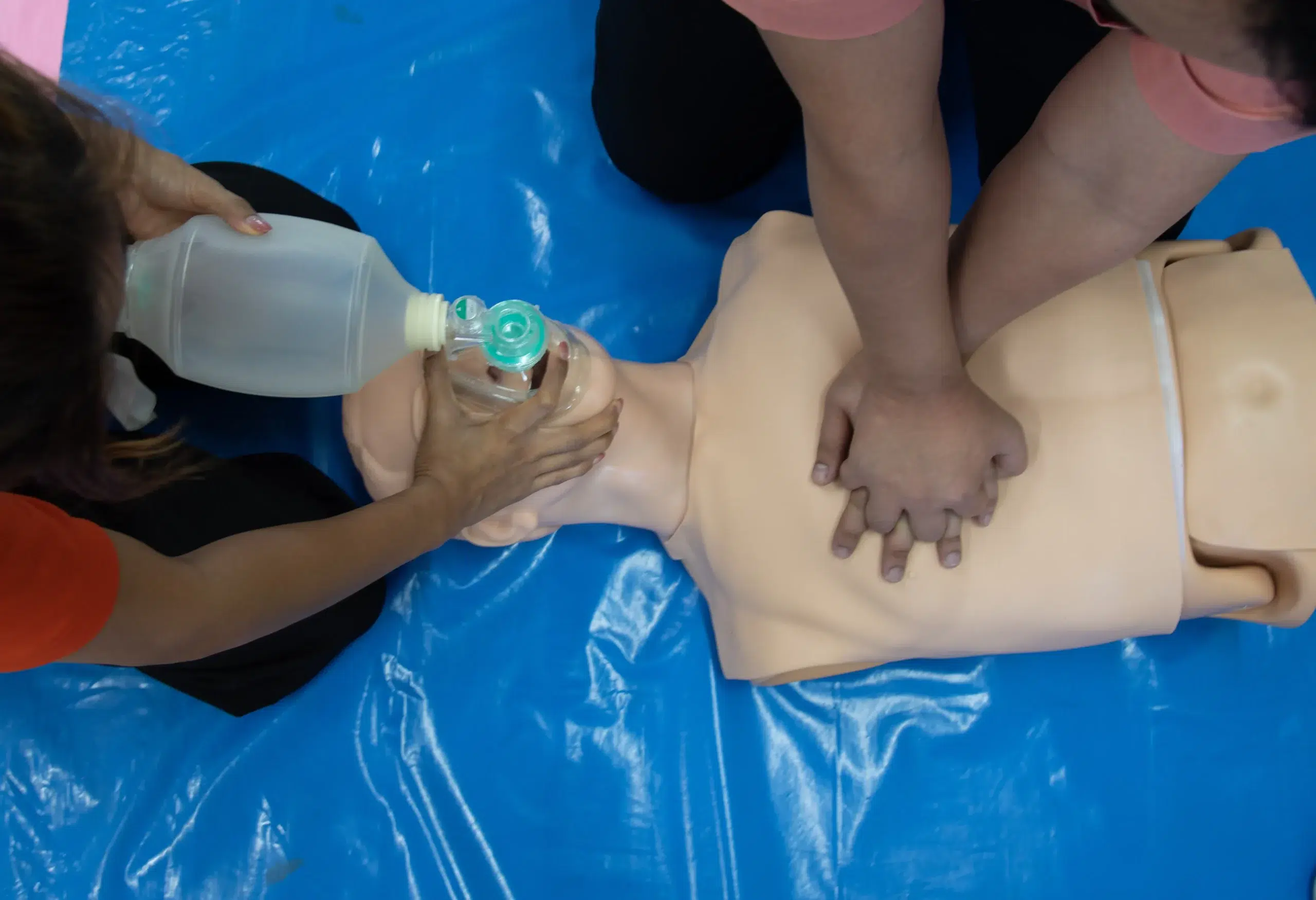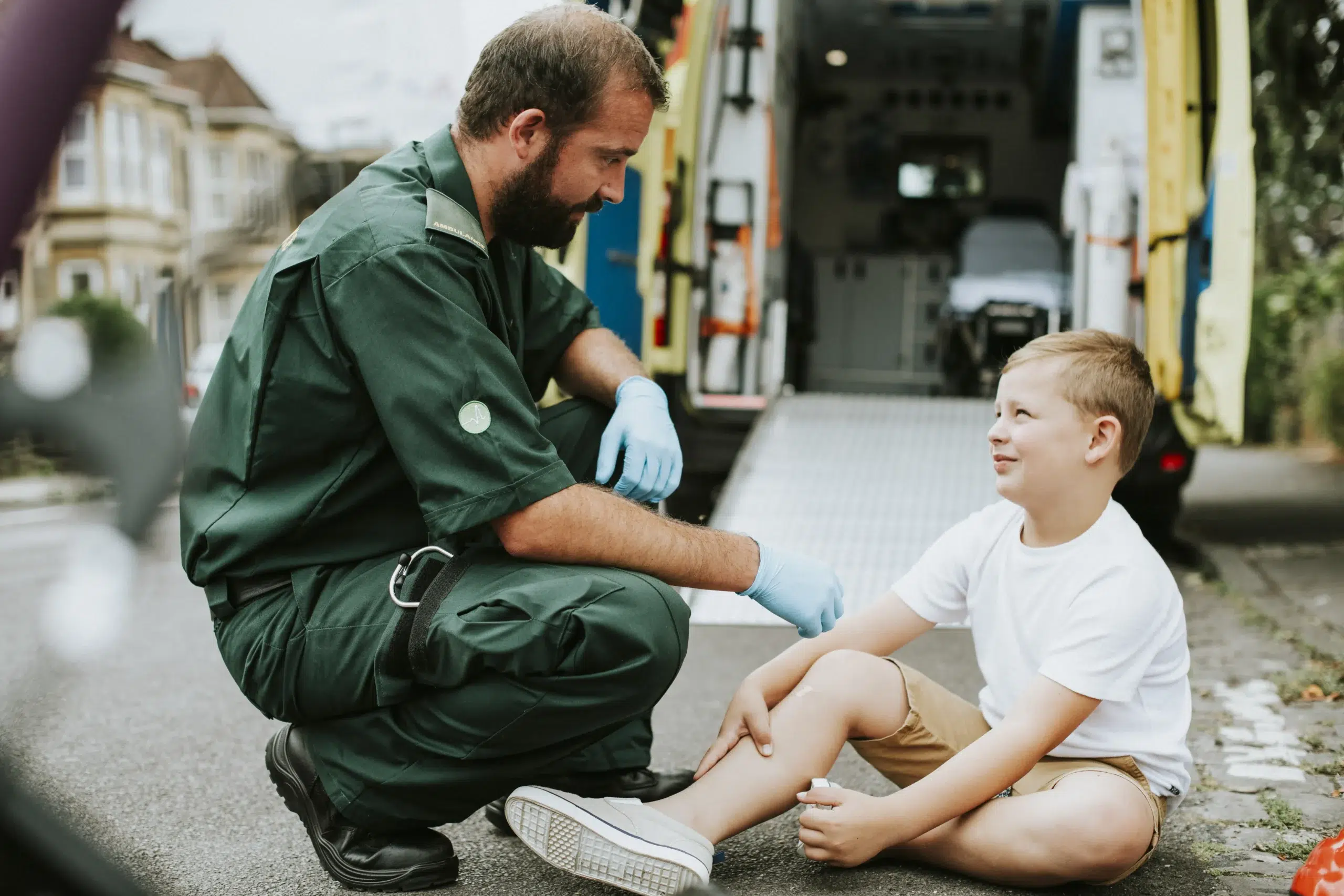Working in healthcare, you know that emergencies can happen anytime, anywhere. But when it comes to children, the stakes are even higher. Their delicate systems require specialized care, and every second counts. Pediatric Advanced Life Support (PALS) training equips you with the skills and knowledge to respond effectively to pediatric emergencies, potentially saving young lives. This guide provides a comprehensive overview of pediatric advanced life support in San Jose, covering everything from course content and certification requirements to choosing the right training provider and managing the time commitment. We’ll also explore the benefits of PALS certification, discuss common training challenges, and offer practical strategies for success.
Key Takeaways
- PALS certification equips you with essential lifesaving skills: It provides the knowledge and hands-on training necessary to confidently manage pediatric emergencies, ultimately improving patient outcomes.
- Finding the right PALS course requires careful consideration: Think about your learning style, schedule, and the provider’s reputation. Look for experienced instructors, comprehensive materials, and convenient course options.
- Maintaining your PALS certification demonstrates your commitment to excellence: Stay current with the latest guidelines and seek ongoing learning opportunities to ensure you’re always prepared to provide the best possible care.
What is Pediatric Advanced Life Support (PALS)?
Pediatric Advanced Life Support (PALS) is a specialized course designed to equip healthcare providers with the skills to respond to pediatric emergencies. It focuses on the distinct needs of infants and children, recognizing that their physiology and responses to illness and injury differ significantly from adults. From respiratory distress and shock to cardiac arrest, PALS training covers a wide range of life-threatening conditions. The goal is to provide a systematic approach to assessment, intervention, and stabilization, ultimately improving outcomes for young patients. For those in the San Jose area, you can find more information on PALS courses offered by Safety Training Seminars.
Essential Skills and Knowledge
PALS certification provides essential knowledge and hands-on training to manage pediatric emergencies effectively. Participants learn to rapidly assess a child’s condition, identify the underlying cause, and implement appropriate interventions. The course emphasizes a team-based approach, teaching effective communication and coordination among healthcare professionals. Key skills covered include airway management, vascular access, medication administration, and resuscitation techniques tailored to pediatric patients. This comprehensive training leads to improved patient outcomes and increases the chances of survival during critical situations. This PALS overview provides further context on the training’s importance.
Why PALS Matters for Healthcare Providers
In a dynamic healthcare environment, PALS certification is crucial for any professional involved in the care of infants and children. It empowers providers to confidently and competently handle emergencies, contributing to better patient care and potentially saving lives. Equipping providers with the knowledge to deliver prompt interventions, PALS certification enhances survival rates during emergencies. Whether you’re a doctor, nurse, or other healthcare professional, PALS certification demonstrates a commitment to providing the highest quality care for young patients.
Top PALS Certification Providers in San Jose
Finding the right PALS certification course is crucial for healthcare providers. Here are some of the training centers offering PALS certification in San Jose:
Safety Training Seminars
Safety Training Seminars offers American Heart Association (AHA) certified PALS courses, along with other essential certifications like BLS, ACLS, CPR, and First Aid. They focus on providing high-quality training and convenient schedules for busy professionals in San Jose, Santa Clara, and Sunnyvale. They also have a low price guarantee.
American Heart Association
The American Heart Association (AHA) sets the standard for PALS training. Their PALS courses equip healthcare providers with the skills to respond effectively to pediatric emergencies. AHA certification is widely recognized and respected in the medical community.
Lifework Education
Lifework Education provides a range of CPR, BLS, ACLS, and PALS certification courses in San Jose and throughout California. With over 25 years of experience, they offer comprehensive training programs for healthcare professionals.
Stanford Health Care
Stanford Health Care, a renowned medical institution, likely offers PALS certification. Contact them directly to learn more about their courses.
Red Cross
The Red Cross offers a blended learning PALS certification, combining online learning with in-person skills sessions. This flexible format accommodates busy schedules.
PALS Course Structure and Format
Understanding the structure and format of a PALS course can help you prepare and choose the best learning environment for your needs. Let’s break down the typical components:
Online Learning
PALS certification equips healthcare providers with the essential skills to manage pediatric emergencies effectively. Many PALS courses offer an online learning component, allowing you to study key concepts at your own pace. This format offers flexibility for busy professionals and ensures you grasp the material before practical application. The online portion covers the core knowledge and principles of PALS, creating a foundation for the hands-on skills session. You’ll find interactive modules, videos, and assessments to reinforce your learning.
In-Person Skills Testing
In-person skills testing is a crucial part of PALS certification. It’s where you translate your online learning into action. Safety Training Seminars offers AHA-certified PALS courses with focused instruction, ensuring students receive high-quality training aligned with the latest AHA guidelines. This hands-on component allows you to practice essential skills like CPR, intubation, and medication administration in a simulated environment with certified instructors. This practice builds confidence and proficiency in critical procedures.
Time Commitment
One of the common questions about PALS certification is the time commitment. It’s important to understand the investment required for both the online learning and the in-person skills testing. While online learning offers flexibility, it still requires dedicated study time. Planning ahead is essential, especially considering the demands of balancing work schedules with training. Consider the time needed to complete the online modules, review materials, and attend the in-person skills session.
Flexible Options
Recognizing the demands on healthcare professionals, many providers offer flexible PALS certification and renewal options. Safety Training Seminars provides various options, including renewal courses, allowing you to choose the format that best suits your schedule and learning preferences. This flexibility makes maintaining your PALS certification more manageable, ensuring you can stay up-to-date with the latest guidelines and best practices.
PALS Certification Costs in San Jose
Choosing the right PALS certification course involves several factors, and cost is often a primary concern. Understanding the typical price range, available discounts, and guarantees can help you make an informed decision.
Typical Course Prices
In San Jose, PALS certification courses typically start around $290. This usually covers online learning materials, the in-person skills session, and your PALS certification card. Prices can vary, so compare options. Many training centers, like Safety Training Seminars, aim for competitive pricing and may have a low-price guarantee. Explore Safety Training Seminars’ PALS course options.
Discounts and Offers
Look for training centers that offer discounts. Safety Training Seminars provides several renewal options, including the RQI program, designed for professionals renewing their PALS certification, often at a reduced price. They also offer BLS and ACLS renewals, making it easier to maintain your credentials. Review their low-price guarantee and discounts.
Safety Training Seminars’ Low Price Guarantee
Safety Training Seminars, a woman-owned AHA Training Center, prioritizes high-quality, affordable American Heart Association courses, including PALS. They’re committed to accessible training for healthcare providers in San Jose. Learn more about their commitment to affordability.
What Happens in a PALS Course?
A Pediatric Advanced Life Support (PALS) course equips healthcare providers with the skills to respond to life-threatening emergencies in infants and children. The training blends online learning with hands-on practice and skills testing, creating a well-rounded learning experience. This blended approach lets you learn the material at your own pace and then demonstrate your skills in a practical setting. Throughout the course, there’s an emphasis on teamwork and communication—essential for effective emergency response. Let’s take a closer look at what each component involves.
Key Topics
PALS courses cover critical topics, including respiratory emergencies, shock, cardiac arrest, and post-resuscitation care. You’ll learn to recognize the signs and symptoms of these conditions in children and provide appropriate interventions. The course also covers important concepts like airway management, rhythm disturbances, and vascular access. For more information about PALS certification, check out this helpful article on common misconceptions. Understanding these core concepts is fundamental to providing effective care during pediatric emergencies.
Hands-On Practice
PALS isn’t just about theory; it’s about applying your knowledge. Hands-on practice is a significant part of the course, allowing you to develop and refine your skills in a safe environment. You’ll work with simulated pediatric patients, practicing essential techniques like CPR, intubation, and medication administration. This practical experience builds confidence and competence in managing pediatric emergencies. You can explore the importance of hands-on training in PALS certification for additional context.
Assessment Methods
PALS courses use various assessment methods to evaluate your understanding and skills. This typically includes online exams, skills testing at a designated testing center, and observation during hands-on practice. The online portion often takes 3–4 hours, while the skills test usually lasts 30–40 minutes. PALS certification classes in San Jose offer various schedules and formats to fit different learning styles and schedules. These assessments ensure you meet the standards for PALS certification.
Teamwork and Communication
Effective teamwork and communication are paramount in any emergency, especially with pediatric patients. PALS courses emphasize clear communication, roles and responsibilities within a team, and strategies for coordinating care. You’ll learn to communicate effectively with other healthcare professionals, families, and caregivers during a crisis. This focus on teamwork and communication prepares you to work collaboratively and efficiently in high-pressure environments.
Benefits of PALS Certification
Earning your PALS certification offers significant advantages, impacting your career trajectory, patient care, and your overall confidence in critical situations. Let’s explore some key benefits:
Advance Your Career
PALS certification is a valuable asset for healthcare providers working with infants and children. It demonstrates a commitment to specialized pediatric care, enhancing your professional credentials and making you a more competitive candidate. Many employers require PALS certification for positions involving pediatric care, so obtaining this credential can open doors to new opportunities and career advancement. It shows potential employers you have the dedicated training to handle pediatric emergencies, giving you an edge in the job market. For current healthcare professionals, a PALS certification can lead to higher earning potential and greater responsibility within your team. Learn more about PALS Certification in San Jose.
Build Confidence in Emergencies
Imagine facing a pediatric emergency. Seconds count, and the pressure is immense. PALS certification equips you with the knowledge and hands-on training to manage these high-stakes situations effectively. Through realistic simulations and practical exercises, you’ll develop the skills and confidence to assess, stabilize, and treat critically ill infants and children. This preparation translates to improved patient outcomes and a greater sense of self-assurance when facing real-world emergencies. Knowing you have the training to make quick, informed decisions can significantly reduce stress and improve your overall performance in critical situations. This confidence also extends to communication, allowing you to effectively coordinate with other team members during a crisis. Explore the challenges and rewards of PALS certification.
Improve Patient Care
Ultimately, PALS certification is about providing the best possible care for young patients. By mastering the skills and knowledge taught in PALS courses, you’ll be better prepared to deliver prompt and effective interventions. This preparedness contributes to better outcomes for pediatric patients, potentially increasing survival rates during emergencies. PALS training emphasizes a systematic approach to assessment and treatment, ensuring you can act swiftly and efficiently when every second counts. This focus on timely intervention can make a profound difference in a child’s life. Safety Training Seminars offers PALS certification courses in San Jose, equipping healthcare professionals with the tools they need to deliver exceptional pediatric care. Our courses cover essential topics like Pediatric Advanced Life Support and provide hands-on practice to ensure you’re fully prepared.
Maintain Your PALS Certification
Keeping your PALS certification current is crucial for providing the best possible care during pediatric emergencies. It ensures you’re equipped with the most up-to-date knowledge and techniques. This section covers what you need to know to maintain your PALS certification and stay at the top of your game.
Renewal Requirements
PALS certification is valid for two years. After this period, you’ll need to renew it to continue practicing. This renewal process typically involves completing a PALS renewal course, which covers the latest guidelines and practices. Knowing your renewal date and planning ahead gives you plenty of time to find a course that fits your schedule. Check with your certifying organization or employer for specific renewal requirements. Safety Training Seminars offers various PALS courses in San Jose to help you stay current.
Continuing Education
Even between renewals, continuing your education in pediatric advanced life support is essential. The medical field is constantly evolving, and staying informed about the latest advancements can significantly impact patient outcomes. Look for opportunities to expand your knowledge through workshops, conferences, online resources, and additional training. This ongoing learning demonstrates your commitment to providing high-quality care and strengthens your skills in emergency situations. Regularly reviewing PALS course material can also be beneficial.
Stay Updated on Guidelines
Staying informed about the latest American Heart Association (AHA) guidelines is key to maintaining your PALS certification. These guidelines are regularly updated to reflect the most current research and best practices in pediatric emergency care. Familiarize yourself with these updates to ensure your techniques align with the latest recommendations. The AHA website offers valuable resources and updated guidelines to support your ongoing learning. Staying updated not only helps you maintain your certification but also enhances your ability to provide effective and safe care.
Choose the Right PALS Provider
Finding the right PALS course can feel overwhelming, but focusing on a few key factors simplifies the process. Whether you’re a nurse, doctor, or other healthcare provider seeking PALS certification in San Jose, Santa Clara, or Sunnyvale, this section will guide you.
Factors to Consider
First, consider your schedule and preferred learning style. Do you thrive in a traditional classroom or prefer the flexibility of online learning? Safety Training Seminars, for example, offers a variety of course formats to accommodate different needs. You can find their course schedule for CPR and First Aid courses, as well as other certifications, on their website. Also, think about location and accessibility. Choose a provider with a convenient location or online options that fit your lifestyle. Explore options like Safety Training Seminars, local hospitals, or visit the American Heart Association website for a list of certified training centers.
Questions to Ask
Before committing to a PALS course, ask potential providers a few important questions. What is the instructor’s experience and qualifications? A knowledgeable and experienced instructor significantly impacts your learning. Inquire about the course content and materials. Does the curriculum align with the latest AHA guidelines? Ask about the total cost, including any additional fees. Safety Training Seminars offers a low price guarantee, ensuring competitive pricing for your PALS certification. Finally, ask about the provider’s success rate and student feedback. A provider’s reputation speaks volumes about the quality of training they offer.
Experienced Instructors
Experienced instructors are essential for effective PALS training. They bring real-world knowledge and can offer valuable insights. Look for instructors who are not only certified but also actively involved in healthcare. They should be skilled at creating a supportive learning environment where you feel comfortable asking questions and practicing your skills. Safety Training Seminars, a woman-owned AHA Training Center, prioritizes high-quality instruction for all its courses, including PALS certification. Choosing a provider with experienced instructors ensures you receive excellent training and feel confident responding to pediatric emergencies.
Safety Training Seminars: Why Choose Us?
Unique Features and Benefits
Safety Training Seminars is a woman-owned American Heart Association (AHA) Training Center, dedicated to providing high-quality training. We offer a full range of AHA-certified courses, including CPR, BLS, ACLS, and PALS, in addition to First Aid and EMSA certifications. This allows you to find all the essential life-saving certifications you need in one place. We know busy schedules can be a challenge, so we offer these courses seven days a week in San Jose and surrounding areas. This flexibility makes it easier to fit training into your life. We also provide various convenient renewal options, such as the RQI program for healthcare providers and renewal courses for certifications like calendar and find a schedule that works for you. Learn more about all our courses and services on our website.
Participant Feedback
We take pride in fostering a supportive, stress-free learning environment. Our instructors are friendly, knowledgeable, and dedicated to guiding you through every step. But don’t just take our word for it—see what other students are saying. Many have shared positive feedback, describing our courses as stress-free and highlighting the helpful guidance provided by our instructors. We believe learning should be comfortable and encouraging, and we work hard to create that experience for everyone. Our commitment to quality instruction and student satisfaction sets us apart. We also offer a low price guarantee, giving you additional value.
Overcome PALS Training Challenges
Let’s be honest, adding another training to your already busy schedule can feel overwhelming. PALS certification is a commitment, but with a little planning and the right approach, you can absolutely conquer the challenges and gain these lifesaving skills.
Manage Your Time
One of the biggest hurdles healthcare providers face with PALS certification is finding the time. Long shifts, family obligations, and continuing education requirements all demand your attention. The key here is smart scheduling. Treat your PALS training like any other important appointment. Block off the necessary time in your calendar and stick to it. Consider breaking your study into smaller, more manageable chunks. Even short, focused study sessions can be more effective than trying to cram everything in at once. Look for courses that offer flexible scheduling options, like evening or weekend classes, to better accommodate your needs. Safety Training Seminars offers a variety of course times to help you fit PALS training into your schedule.
Master the Material
PALS covers a lot of critical information, from recognizing pediatric emergencies to administering appropriate interventions. It can feel like a mountain of knowledge, but focus on understanding the core concepts and principles. Start by reviewing the PALS Provider Manual and other study materials. Use flashcards, practice quizzes, or online resources to reinforce your learning. Don’t be afraid to ask questions! A good instructor will be happy to clarify any confusing points. Remember, the goal isn’t just to pass the exam; it’s to truly grasp the material so you can confidently apply it in real-life situations. PALS certification equips you with the skills to make a real difference in pediatric emergencies.
Maximize Hands-On Practice
PALS isn’t just about textbooks and lectures. The hands-on skills practice is essential for building muscle memory and confidence. Take full advantage of the simulation scenarios and practice sessions offered during your course. This is your chance to apply what you’ve learned in a safe and controlled environment. Don’t hesitate to ask for feedback from your instructors and peers. The more you practice, the more comfortable you’ll become with the procedures and protocols. These practical exercises are invaluable for preparing you to handle real-world pediatric emergencies. Many PALS courses emphasize simulations and real-life scenarios to build provider confidence.
Related Articles
- AHA PALS Classes in San Jose, CA – San Jose CPR Classes
- BLS ACLS PALS Training in San Jose: Your Guide – San Jose CPR Classes
- HeartCode PALS San Jose: Your Certification Guide – San Jose CPR Classes
- San Jose CPR Certification: Your Complete Guide – San Jose CPR Classes
- CPR Renewal in Sunnyvale: Your Complete Guide – San Jose CPR Classes
Frequently Asked Questions
What is the difference between PALS and BLS?
While both PALS and BLS teach life-saving techniques, BLS focuses on basic life support for all ages, whereas PALS delves deeper into the specific needs of infants and children. PALS builds upon the foundation of BLS, adding specialized knowledge and skills for pediatric emergencies.
How long does PALS certification last, and how do I renew it?
PALS certification is typically valid for two years. Renewal usually involves completing a PALS renewal course, which covers updated guidelines and best practices. Check with your certifying organization or employer for specific requirements. Many providers offer flexible renewal options, including online components and abbreviated courses.
What if I don’t work in a hospital setting? Do I still need PALS?
Even if you don’t work in a hospital, PALS certification can be invaluable if your work involves caring for infants and children. From school nurses and camp counselors to daycare providers and those in specialized clinics, PALS equips you to respond effectively to pediatric emergencies in any setting.
How much does PALS certification cost, and are there any discounts available?
The cost of PALS certification varies depending on the provider and location. It’s always a good idea to compare prices and inquire about potential discounts. Some providers offer discounts for groups, students, or those renewing their certification. Look for providers with a low-price guarantee to ensure you’re getting a competitive rate.
What can I expect during the hands-on portion of the PALS course?
The hands-on component of PALS training focuses on practical application. You’ll work with simulated pediatric patients, practicing essential skills like CPR, airway management, and vascular access. Expect a dynamic and interactive learning environment where you can refine your techniques and build confidence in your abilities.


